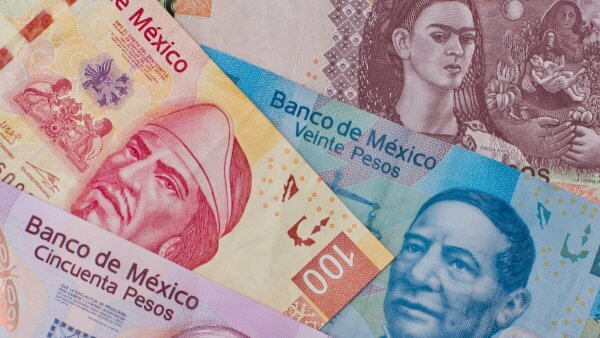Best places to exchange currency without paying huge fees
You're all set for your trip abroad, and the question comes up: where can I exchange foreign currency? In this article, we'll go through all the options & tips.

If you’re in the military or work for any of a broad range of Federal Agencies, you may need to get a Government Travel Charge Card (GTCC) to pay for essential travel. This guide will introduce the Citibank Government Travel Card, including what it is, how to get it, and when to use it.
Because your GTCC is only for essential expenses, we’ll also highlight the Wise Multi-Currency Account — your perfect partner for all the other costs you might encounter as you travel.
The US government contracts with major financial institutions to provide charge cards to over 560 Federal Agencies and tribal governments¹. These GTCC cards can then be used for essential work related spending, meaning that individuals shouldn’t find themselves in financial difficulties or struggling with cash flow while they wait for expenses to be repaid. Instead, use the GTCC when you have to incur expenses for work — then complete your travel voucher after returning to the US to reclaim the funds and pay off the card.
Government Travel Cards have a number of advantages compared to regular credit cards. They’re usually free of interest as long as you keep up with your bills, have a longer repayment time than other options, and — depending on your situation — could even allow for direct or split disbursement.
Various different GTCCs exist, which are issued according to your role level and personal circumstances. This guide walks through all you need to know about getting and using the Citi Government Travel Card. You can manage the Citi GTCC using an automated phone banking service, making it simple to check transactions, pay your bills or change your PIN.
If you need a GTCC for your job you’ll be notified, and required to complete the application process. There are several different types of card which can be issued based on your role and credit history.
IBA (individually billed account) GTCCs are used by employees who have to pay for essential travel for work. If you hold an IBA card you’ll need to use it to pay for your essential expenses, reclaim the payment through your employer’s process and then pay off the bill yourself. Cards are issued under Standard and Restricted formats — the restricted card is available to those with limited credit history or a poor credit score.
If you have a centrally billed GTCC you’ll be required to use it for work related expenses — and then your employer will settle the bill directly on your behalf. CBA cards are only issued by some agencies, and only for specific employees based on their job requirements.
SmartPay Tax Advantage Travel accounts are a combination of the IBA and CBA products. If you hold a SmartPay card you’ll be able to centrally bill certain expenses — such as hiring a car or finding a place to stay when you travel — but will need to individually pay and reclaim other costs like meals.
GTCCs are used by hundreds of Federal Government agencies. To find out if you’re eligible based on your role, you’ll need to check the policies in place or ask your supervisor.
The GTCC is widely used in the military to pay for travel, temporary duty assignments and deployments³. Both civilian contractors and those in the uniformed services can apply for a GTCC which is used to alleviate financial pressure when incurring work related travel expenses.
When it’s time to get a GTCC you’ll be notified by email from your Agency Program Coordinator (APC) or supervisor⁴. You’ll then need to complete, sign and stamp the application form, and pass it to your supervisor for their approval. Make sure you leave enough time for the application process as there are several approval steps which need to be carried out by your APC and Citi.
Once your card is ready you’ll need to set it up with a PIN and check it has been activated by your APC.
You may need to use your GTCC for most of your essential spending when you travel for work — but for all other international payments, you’ll want Wise. Sending and spending money overseas with Wise is simple, uses the real exchange rate, and comes with low, transparent fees which can be 3x cheaper than your normal bank.
|
|---|
Start saving on international travel
Learn more about the Government Travel Charge Card here.
The GTCC is a good option for individuals as it has extended payment terms compared to other similar cards, offers interest free credit, no annual fee and split disbursements. GTCCs can also be issued to people with low credit scores³.
Depending on your card type and the specific issue you have, you may need to contact your Agency Program Coordinator (APC)⁵, or get in touch with Citi directly.
Citi agents are available for general queries on the following numbers²:
There are also a range of contact numbers for Citi based on specific query types — find all the details you need on the Citi website.
Always pay in the local currency when you’re abroad, to get the best available exchange rate and avoid unnecessary fees.
Check the process in place at your specific agency to make sure you’re using your GTCC appropriately when you travel. In the case of the military, when your trip is over you’ll need to review all your expenses and complete a travel voucher. This should be done within 5 duty days from your return to the US³.
You’ll need to protect your GTCC as you would any other credit or debit card. Keep your PIN safe and verify the identity of anyone asking you for information about the card. If your card is lost or stolen, report this to your APC immediately so they can follow up with Citi.
Getting a Citi Government Travel Card might make it easier when it comes to financing essential travel — and, depending on your position, it could even be mandatory. There’s lots of help out there to make sure you understand the application process, limits and ways to use your card. Use this guide as a starting point, access all the resources you need to get started — and talk to your APC if you’re left with any questions about your Government Travel Card.
Finally, don’t forget to check out the Wise Multi-Currency Account as a smart way to cover your other costs while overseas, without excessive bank fees.
Sources checked on 05.07.2021
*Please see terms of use and product availability for your region or visit Wise fees and pricing for the most up to date pricing and fee information.
This publication is provided for general information purposes and does not constitute legal, tax or other professional advice from Wise Payments Limited or its subsidiaries and its affiliates, and it is not intended as a substitute for obtaining advice from a financial advisor or any other professional.
We make no representations, warranties or guarantees, whether expressed or implied, that the content in the publication is accurate, complete or up to date.

You're all set for your trip abroad, and the question comes up: where can I exchange foreign currency? In this article, we'll go through all the options & tips.

Heading abroad? Here’s everything you need to know about ordering Canadian dollars in the US.

Going abroad and in need of foreign currency? In this article, we'll explore where to exchange currency - from good deals to the places you should avoid.

Heading abroad? Here’s everything you need to know about ordering pesos with Chase bank.

Heading abroad? Here’s everything you need to know about ordering pesos with Wells Fargo.

Heading abroad? Here’s everything you need to know about ordering euros with Bank of America.